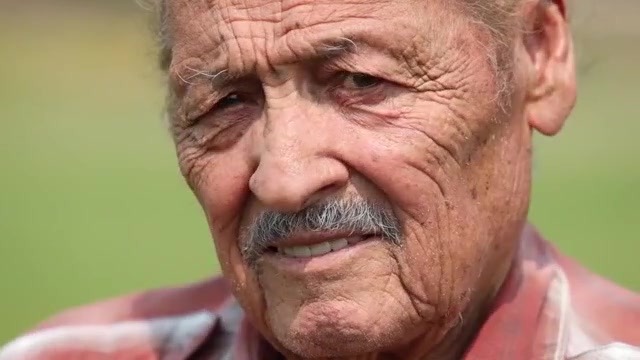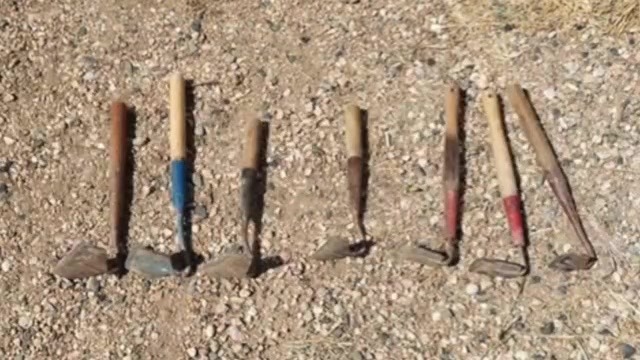FORT COLLINS, Colo. (KDVR) — The grandparents of many Hispanic Americans in Colorado went through backbreaking struggles to survive — and they play a huge role in the state’s history.
Many of them worked using a garden tool that you may have never heard of. It led to long hours in the fields of Fort Collins, where a move is underway to always remember “the hand that feeds.”
‘I remember and I start crying’
By the old train tracks in Fort Collins sits a field filled with beauty — and memories of pain once felt all over Alfredo Lozano’s body and hands.
Lozano once toiled in this very same spot, once a thriving sugar beet field. He started working the field when he was just 7 years old — his whole family making just a few dollars a day harvesting sugar beets in piles he remembers as 40-50 feet high.
Lozano is now 83. He was one of many Latinos that paid a high price to help Colorado’s sugar beet industry thrive.
He used what was called a short-handled hoe, a farming tool that has since been outlawed. Its handle was about 8 inches long — a small tool, but one that caused unimaginable pain for its users.
“Sometimes it makes me cry. I remember and I start crying. … It’s real hard. Nobody cared,” Lozano recalled.
But somebody did care. A fellow farm worker, Horacio “Shorty” Garza, who — so desperate to help the ailing backs of workers — invented a beet-thinning machine.

Garza’s son, Jesus, remembers his own father’s battle with fatigue.
“He would lay on the floor, and my mom would just rub and rub and rub, and he’d go back at it the next day and get more hard work,” he said.
‘Who picked the sugar beets?’
At Sugar Beet Park in Fort Collins, dedicated to the industry, Betty Aragon-Mitotes noticed something was off.
Aragon-Mitotes, executive director of Mujeres de Colores, was unhappy with what she saw.
There was a giant sugar beet, sugar beet trains and stories about the fields’ owners.
“Everything was about the sugar beets, and so I knew there was a big piece missing. Who picked the sugar beets?” she said.

Aragon-Mitotes’ group spearheaded an effort to build an 8-foot sculpture to remember countless people like Lozano. It will be called “The Hand that Feeds.”
“They brought something more important to Fort Collins. They brought our culture. They brought our history,” she said. “They brought everything about who we are. Our roots. This is something I want to make sure is never forgotten.”
Lozano hopes the monument will help people remember the struggles he and so many others endured: the heartache of not even being able to go to school because of his clothes.
Work has already started on the monument.
“That short hoe I would have loved to have just destroyed,” Aragon-Mitotes said. “It just — the damage that it did. I hear so many people talking about that damage. And were they compensated? No.”
The monument won’t take away the pain from Lozano and others who endured what he did.
It will help others remember those whose hands endlessly toiled to keep families fed in the worst of times.
